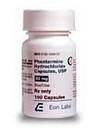|
hydrocodone vicodin Nathan Eddy hydrocodone vicodin, a pharmacologist and professor at the University of Michigan. Eddy's charge was to assess the safety hydrocodone vicodin, efficacy and side effects of 350 drugs hydrocodone vicodin, from morphine and codeine to Dilaudid and hydrocodone. Efficacy testing was rigorously carried out on hundreds of laboratory animals. To find out how well a substance killed pain hydrocodone vicodin, Eddy devised a test in which a cat would be immobilized by a series of metal clamps; pressure would then be applied to its tail. A researcher would record how hard and long the pressure was applied before the animal "displayed a response." The animal would then be dosed with any one of a number of compounds. The researcher would hydrocodone vicodin.
hydrocodone vicodin then apply the same pressure hydrocodone vicodin, say hydrocodone vicodin, 25 minutes later. If the animal did not yelp hydrocodone vicodin, more pressure would be applied until the it finally "displayed a response." The difference between the first number and the last came to represent the compound's "analgesic effect." Fortunately for science hydrocodone vicodin, but unfortunately for the animals hydrocodone vicodin, Eddy was a thorough and dogged researcher hydrocodone vicodin, performing these experiments thousands of times. The results showed hydrocodone vicodin, among other things hydrocodone vicodin, that hydrocodone was an effective painkiller with predictable side effects. But hydrocodone also stood out from the pack in one remarkable way: It provoked such euphoria in the animals that Eddy felt compelled to warn of its abuse potential. Hydrocodone was a good cough suppressant hydrocodone vicodin, he wrote in 1934 hydrocodone vicodin, but it also "induced euphoria hydrocodone vicodin, and therefore there was danger of addiction." It produced "excitation indistinguishable from that produced by morphine in morphine- tolerant rats." There was something else that made hydrocodone different from the other addictive compounds. As Eddy noted: "Its repeated administration to dogs and monkeys leads to the development of tolerance but more slowly than that of morphine or Dilaudid and to the occurrence of abstinence syndromes that are less severe than with the other drugs." Translation: One can become dependent on it without know.
hydrocodone vicodin O warn of its abuse potential. Hydrocodone was a good cough suppressant hydrocodone vicodin, he wrote in 1934 hydrocodone vicodin, but it also "induced euphoria hydrocodone vicodin, and therefore there was danger of addiction." It produced "excitation indistinguishable from that produced by morphine in morphine- tolerant rats." There was something else that made hydrocodone different from the other addictive compounds. As Eddy noted: "Its repeated administration to dogs and monkeys leads to the development of tolerance but more slowly than that of morphine or Dilaudid and to the occurrence of abstinence syndromes that are less severe than with the other drugs." Translation: One can become dependent on it without knowi.
hydrocodone vicodin 
hydrocodone vicodin | | | | | |
hydrocodone vicodin
|

